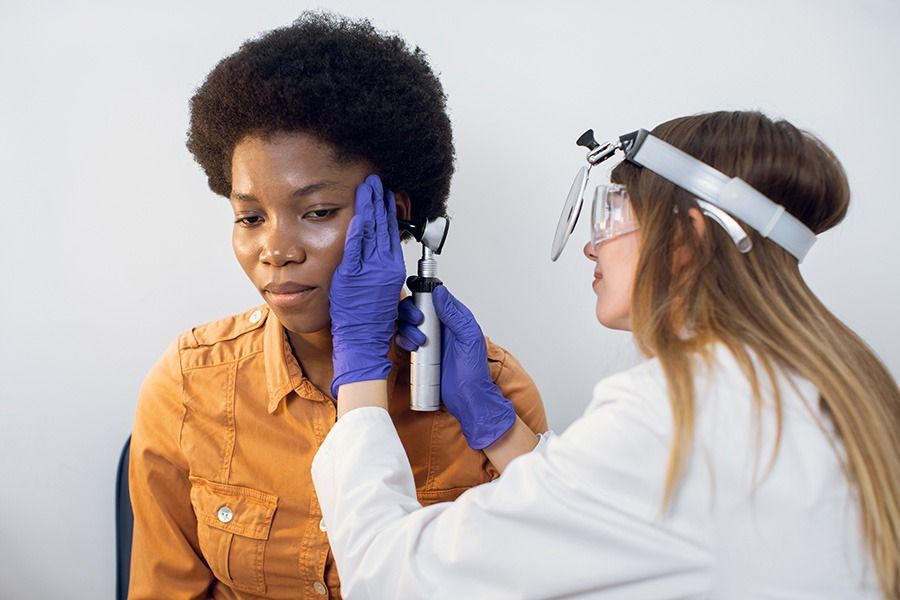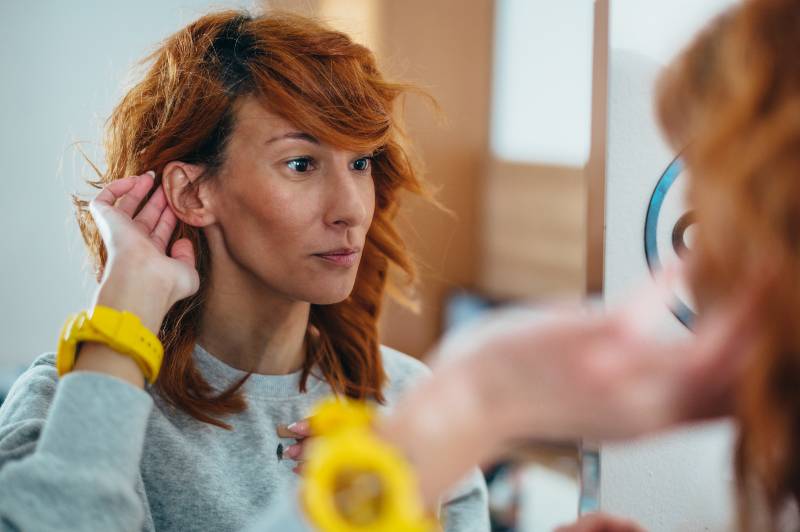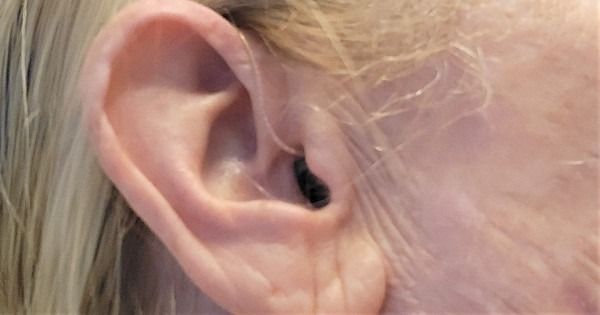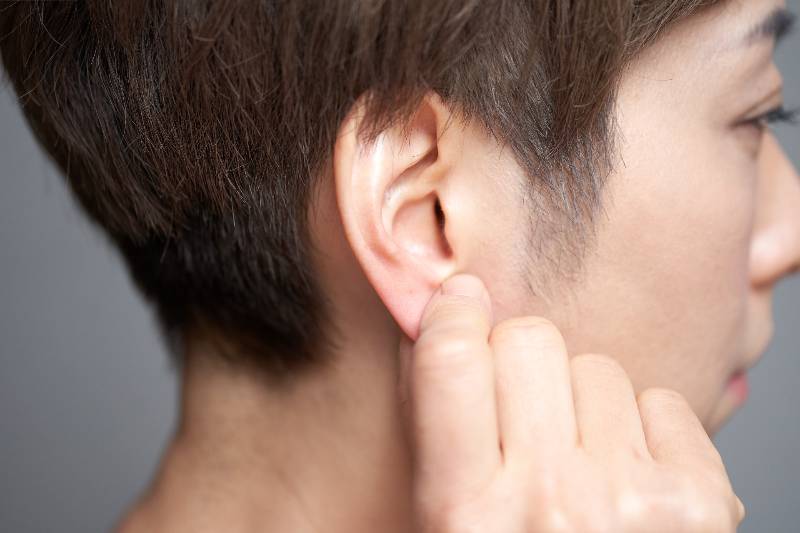Introduction
Nurturing a loved one with sensorineural hearing loss can be an enlightening voyage fraught with both trials and revelations. As we immerse ourselves deeper into the intricacies of this condition, we’re constantly in search of efficacious strategies for management and enhancing the living standards for those affected. While traditional remedies remain fundamental, there’s an increasing fascination surrounding holistic and integrative therapies. These techniques potentially offer singular advantages, augmenting the foundation provided by conventional treatment.
In this enlightening discourse, we’ll explore five holistic modalities – acupuncture, yoga, sound therapy, meditation, and nutrition – and their prospective benefits for sensorineural hearing loss. Though scientific inquiry is still in its early stages, anecdotal testimony and preliminary research imply that these methodologies might present valuable advantages. It’s critical to perceive these practices as auxiliary to, not substitutes for, conventional treatments, and consultation with healthcare professionals is advised before commencing any new health regimen.
This article doesn’t intend to provide medical counsel, but rather to illuminate emerging realms of interest, ignite dialogues, and offer a stage for collective learning and discovery. For those seeking to augment their understanding and possibly enhance their coping mechanisms for sensorineural hearing loss, this is your read.
Remember, each individual is distinct, and what proves efficacious for one may not for another. The essence lies in grasping these methodologies, evaluating potential benefits and risks with healthcare experts, and making enlightened choices based on personal requirements and situations.
Lipo-Flavonoid Plus, Tinnitus Relief for Ringing Ears
Considered the most effective over-the-counter solution by ENTs, this product comes highly recommended by doctors for reducing ear ringing. Its effectiveness has been acknowledged and trusted by medical professionals in the field.
Please note that exposure to heat or sunlight may cause melting or damage to the product. To ensure the product’s integrity, customers are advised to be present during the delivery process.
Formulated with a natural lemon bioflavonoid complex, this product contains a rich blend of essential vitamins and nutrients such as Vitamins C, B1, B2, B6, B12, Calcium, Choline Bitartrate, Inositol, Niacin, and Pantothenic Acid. These ingredients provide vital nutritional support for the inner ear, making it beneficial for individuals with tinnitus and Meniere’s syndrome.
Acupuncture and Sensorineural Hearing Loss: Unpacking the Evidence
Acupuncture, an ancient Chinese medical technique involving the insertion of slender needles into specific body points, is designed to regulate the body’s energy, or ‘qi’. It has found application in addressing various health ailments. But how does it fare when it comes to sensorineural hearing loss?
Emerging studies hint that acupuncture might aid in managing symptoms of sensorineural hearing loss. For instance, a research piece in the “International Journal of Clinical Acupuncture” demonstrated that acupuncture, coupled with traditional Chinese medicine, positively impacted sudden sensorineural hearing loss. It’s worth remembering, however, that such studies usually have limited sample sizes, warranting broader-scale research.
Anecdotal accounts present another beacon of optimism. Certain individuals with sensorineural hearing loss have reported enhanced hearing and diminished tinnitus post acupuncture treatments. Nevertheless, these experiences are personal, and their effectiveness may vary.
While these preliminary findings provide hope, they remain precisely that – preliminary. Further expansive research is requisite to establish a clear correlation between acupuncture and improved symptoms of sensorineural hearing loss. Additionally, consultation with a healthcare provider is essential before commencing acupuncture, as it may not be appropriate for everyone and might potentially interact with ongoing treatments.
Sensorineural Hearing Loss and Yoga: Prospective Advantages
Yoga, a venerable Indian discipline that merges physical poses, breath regulation, and meditation, is widely lauded for its stress management benefits, improved flexibility, and overall well-being enhancement. But could yoga also confer potential advantages for sensorineural hearing loss?
Scientific research directly associating yoga with improved hearing loss symptoms is sparse. However, yoga’s renowned stress-reducing and relaxation-promoting benefits might indirectly assist those with sensorineural hearing loss. Stress is known to worsen tinnitus, a typical symptom of this condition. Hence, practices like yoga that help regulate stress levels might offer potential benefits.
Further, yoga encourages profound mindfulness, which can assist individuals in better coping with their hearing loss. By cultivating awareness of the present moment, yoga practitioners can navigate daily life with increased resilience and acceptance.
Despite the absence of direct scientific proof, anecdotal reports suggest that yoga’s calming and centering effects can enhance the quality of life for people living with sensorineural hearing loss. As always, it’s essential to remember that yoga should serve as a complementary approach, not a replacement for conventional treatments.
Sound Therapy and Sensorineural Hearing Loss: Investigating the Potential
Sound therapy, often dubbed sound healing or auditory therapy, employs specific sound frequencies and types to promote health and wellness. This centuries-old technique, spanning across cultures, is gaining recognition for its potential health advantages.
In the realm of sensorineural hearing loss, sound therapy primarily utilizes hearing aids and cochlear implants to amplify sounds, rendering them clearer to the user. These devices are considered a form of sound therapy as they alter the auditory system’s acoustic input to aid in communication and sound perception.
Beyond traditional devices, music-based sound therapies for hearing loss are gathering interest. These therapies exploit music’s complex acoustic properties to possibly stimulate the auditory system uniquely. This approach could potentially enhance auditory processing capabilities and boost communication skills.
Preliminary research suggests that music-based sound therapy might foster neuroplastic alterations in the brain’s auditory cortex. However, these findings are initial, and more comprehensive research is required to fully comprehend this approach’s benefits and limitations.
Sensorineural Hearing Loss and Meditation: A Conscious Path to Healing
Meditation, a revered practice aiding relaxation, stress reduction, and mindfulness fostering, doesn’t have direct evidence suggesting that it can alleviate sensorineural hearing loss symptoms. Nevertheless, its proven benefits in stress management and mindfulness promotion could be advantageous.
Stress significantly exacerbates tinnitus, a common symptom of sensorineural hearing loss. By diminishing stress levels, meditation could potentially help manage this symptom more efficiently.
Furthermore, the mindfulness aspect of meditation can assist individuals in better coping with their hearing loss. By fostering a non-judgmental awareness of their present experiences, individuals can navigate daily life with greater acceptance and resilience.
Though meditation cannot revert sensorineural hearing loss, it could be a valuable complementary therapy to help manage associated symptoms like tinnitus and stress reduction. As always, it’s critical to remember that meditation should serve as a complementary approach, not a replacement for traditional treatments.
Nutrition’s Role in Managing Sensorineural Hearing Loss
Nutrition may not directly mitigate sensorineural hearing loss, but a balanced diet is integral to overall health and wellbeing, including your auditory system. Some research suggests a correlation between certain nutrients and hearing health.
Antioxidants, for instance, are being investigated for their role in preserving inner ear health. Vitamins and minerals like vitamin C, E, and magnesium, boasting antioxidant properties, might potentially shield the inner ear cells from oxidative stress, which can culminate in damage and cell death.
Omega-3 fatty acids, commonly found in fish and flaxseeds, have also been suggested to potentially support hearing health. Some research points out that frequent consumption of omega-3 fatty acids-rich foods may reduce the risk of age-related hearing loss, though the underlying mechanism remains unclear.
Maintaining a healthy weight is also vital. Obesity and related conditions like diabetes and cardiovascular diseases have been linked with an increased risk of hearing loss. A balanced diet and an active lifestyle support not just your overall health, but possibly your hearing health too.
While diet and nutrition play a supportive role in hearing health, it’s critical to remember that sensorineural hearing loss is primarily managed through medical interventions like hearing aids, cochlear implants, and various therapies.
Conclusion
Sensorineural hearing loss impacts numerous individuals globally. While the condition is typically irreversible, a variety of holistic methods can potentially help manage the symptoms and enhance the quality of life. Whether it’s acupuncture, yoga, sound therapy, meditation, or nutrition, each of these avenues provides a unique perspective on healing.
However, it’s imperative to remember that these holistic techniques are not substitutes for traditional medical treatment, but potential adjuncts. The aim is to address sensorineural hearing loss from multiple angles, promoting a comprehensive strategy that tackles both the physical and psychological aspects of the condition.

Thriving with Conductive Hearing Loss: A Guide to Hobbies, Fitness, Socialization, and Relationships
This guide offers strategies for seniors caring for someone with conductive hearing loss, focusing on hobbies, fitness, social events, dating, and music.

Navigating the Sound of Silence: Insights into Living with Conductive Hearing Loss
An in-depth look into the lives of seniors with conductive hearing loss, exploring their challenges and the strategies they use to lead fulfilling live








